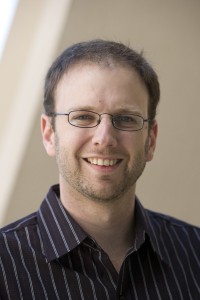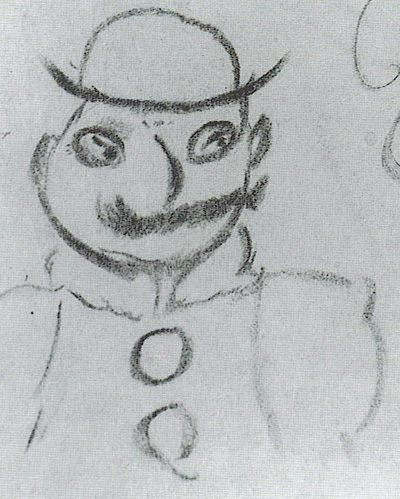Current Location: Palo Alto, Calif.
Current Gig: Freelance science writing and communications consulting
Member Since: May 5, 2010
Six-word memoir: Too many interests, not enough time.
Favorite Tech Tool: I do the majority of my writing on an iPad with wireless keyboard and use Evernote as a replacement for my dodgy memory. I have a full list of how tech augments my life.
Favorite fictional character:
Leopold Bloom, as I can relate to his unintentionally peripatetic days.
What happens during your average day?
I try to carve out time for things I want to do and fit my work around them at the times I know I am most productive. So I’ll generally start work early, go climbing in the morning, back to work for a few hours, then after some lunch work from a cafe or my home office, depending on the nature of the work. I might also take a few hours off in the afternoon when I know my productivity is low and then do some more in the cool of the evening. The work is generally a mix of writing, developing new contracts or projects, and working on longer-term projects such as my books.
What project have you worked on that you are most proud of?
Most definitely Symmetry magazine, which was an attempt to rethink what institutional publications are like. I tried to bring what is ostensibly an institutional magazine closer to true journalism by considering the scope of the publication as the global particle physics scene and the sponsoring institutions merely as sponsors and not controllers of content. Particle physics is an esoteric topic, I know, but we had about 200,000 online readers/month and we printed 20,000 copies, trying to keep that down as it was money losing.
The reason I am most proud is that I was able to assemble a really talented team (never overlook the impact of designers on all aspects of a magazine’s production and never think of them as the end stage only!), including a Pulitzer-winning journalist, and do something genuinely innovative in the style, look and content. The most flattering part is seeing aspects of the magazine since copied in other institutional publications over the eight years I was editor-in-chief. But now it’s time to reinvent the institutional magazine again and I have some plans to attempt this.
Why did you choose to get involved with online media?
There is no way that you could get 200K readers a month for a particle physics magazine if it were print-only as the audience is far too distributed. Online lets us get to that community. We had constant requests from people asking permission to translate the magazine into a variety of languages that don’t have speaking populations large enough to support such a magazine, for example. My next magazine project is about to become even more embedded in an online culture although it will still probably have a print augmentation because I’m such a huge fan of print. However it will be online first (or possibly mobile first).
How has science writing evolved with the advent of the internet? Do you think the public is more scientifically informed than before?
Science is fundamentally a global business and so online provides an opportunity to treat the field authentically. Unfortunately, I don’t think the public is scientifically more informed if you look at the number of people who understand what being scientific means. I think we have done a better job of capturing those with latent underserved interest in science but not really converted others into fans.
I actually think that the trends in mainstream journalism undermine the potential for science journalism to reach new audiences. In particular, he-said, she-said journalism is anathema to science journalism in most cases because there is something akin to a truth in science and the journalist really can know enough about a subject to judge where the scientific consensus lies. If science journalism were like mainstream journalism, every time we wrote a story about spacecraft in orbit, we’d also need a comment from the flat-earthers to “balance” the story. I think that too many journalists are reneging on their duty to present the truth by hiding behind a fundamentally mistaken interpretation of balance.
You recently started your own consulting business doing writing and strategy for scientific organizations. How did you transition from journalism into entrepreneurship?
I won’t say it was an easy choice but it was a needed one for me. I ended up in a place where I disagreed fundamentally with the strategic choices being made where I worked and I felt that it inhibited any chance I had of achieving excellence in what I do. And what’s the point in pouring our energies into a relatively thankless profession if we can’t at least have the chance of being good at it in our own way? So I just took the plunge, resigned in protest, and started carving out work projects that allowed me to do things that I thought were valuable, ethical and enjoyable. My biggest negative is missing the day-to-day contact with people I worked with. I feel pretty strongly that the main purpose of having a workplace where people all go is for social reasons as we can handle most of the professional needs through new technologies.
I’ve never thought of myself as entrepreneurial although perhaps I’m mistaken about that. I just believe in trying to achieve excellence regardless of what the people around me have been inculturated with. And so I think I am still a journalist at heart as I am trying to tell stories that speak truth and helping others do the same. It’s just that I’m now often doing it outside the usual formats of journalism. However, I think it serves the same purpose.
What advice would you offer other journalists looking to strike out on their own?
Know everybody. Only do it because you have a deep inner need to, as it’s not an easy way to pay the rent. Find good people to collaborate with (e.g. designers) and you’ll make yourself a lot more marketable. Realize that people are very willing to help you but that help might not come in the form you expect. Don’t take others’ advice too seriously as you need to find your own way forward that matches your particular skillset and interests to the needs of society. But still know everybody. That is the exception to the “don’t follow this advice” clause.
If you had a million dollars dedicated to improving media, you would …
I’d invest in a cadre of pairs of entrepreneurial thinkers, teamed up as journalist+software/web developer, with a view to exploring new ways to tell the stories of science. In particular I’d be very interested in finding good ways to deal with the constant tension in science reporting of the immediacy of news vs. the long timescales of science research. Science is still very important even when it’s not of the breakthrough kind. How can we best tell these stories? I have plenty of ideas but I think a group of people committed to such questions would do a better job of discovering it. That said, I’m available :)


